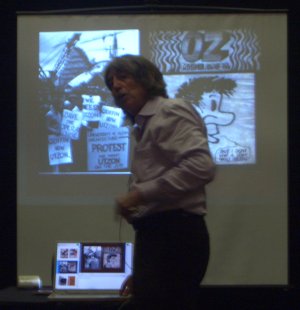The library at my alma mater, the University of Western Australia, is writing a strategic plan. They have generously released the preliminary environmental scan, Strategic Plan 2008-2010: scanning the environment .
It is an worthwhile read and very well researched by over 21 staff in four teams who examined
- Teaching and Learning
- Research,
- Information Resources and Users of the Future
- Information and Communication Technologies Futures.
Interestingly, the teams discovered that many of the issues in the individual areas were the same, and they wrote a lot more convergent report than they anticipated.
Two parts in particular leaped off the page at me. The first is an excerpt from
…the results of the UWA Student Services Survey of first year students (Skene, Cluett, & Hogan, 2007) [which] found:
• 95% of students surveyed have Internet access at home
• 90% are online more than once a day
• 96% own a mobile phone and 56% own a laptop
• 46% used instant messaging at least once a day
• 23% were blogging on a weekly basis
• 74% downloaded music
• 66% percent used You Tube
Yes – that’s right – 40% more students had mobile phones than laptops. I don’t know whether the survey asked about internet enabled mobile phones. I hope that libraries who spend resources on furniture for users who bring in laptops are also looking at their websites and making sure they are mobile friendly.
(By the way, an excellent description of why and how to make a library website mobile friendly was presented by Cathy Slaven at QULOC in 2006 – Designing web pages for small screen devices) .
The other bit that interested me was their “Developing People and Processes” in their “Key Issues”:
The Library must recruit, develop and retain talented staff who have exceptional skills in anticipating and responding to a quickly changing environment.
• The Library needs to review its operational planning process in order to respond more quickly to implementing changes relating to new technologies.
• The Library needs to enable timely evaluation, testing and implementation of new technologies by ensuring supporting infrastructure is flexible and has sufficient capacity for growth.
Like the little kid who eats only the pink jellybeans because they are her favourite, I rushed straight to the bits that interested me – there is something to tickle your fancy if you have different library interests like planning physical spaces and resource discovery. If you’re not sure about IPV6 or 3D Printing or Green Offices, download a copy and check it out.
I’m saving it right next to David Lewis’ A model for academic libraries 2005 to 2025 and Part one and Part two of staff responses to the McMaster University Library Strategic planning process .



